A poignant story by Michele, concerning neurodiversity, for the Special Feature, exclusively for Different Truths.
“When I am not prepping or playing a concert, or teaching, I paint,” he said, looking at me through those oversized, dark-rimmed glasses. “I paint, I play the piano, I write songs. Life goes on, and if you don’t grab it by the shorts, you will never get anywhere.
“Oh,” he added, “get the sem lek. The small noodles are always the best.”
We ordered; I got the thin-noodle soup, with fresh sprouts, mango-leaves, basil, garlic, chilis, and extra triangles of lime on the side, just like he did. And tea. Always, in Thailand, tea.
“So,” he continued, leaning back in the cheap plastic chair, crossing one leg widely over the other, “what can I do for you?”
“I was hoping you could play a concert, umm, concerts, for me,” I ventured.
He grinned.
“You are …”
“…the only classical pianist within hours of here,” he finished for me.
“Well, Goethe Institute, the Alliance Française, and several of the better hotels seem to be the only places, outside of private buildings and residences, that even have pianos here,” I said, “and the directors of Goethe and the Alliance both recommended you to play my vocal concerts while I am here… What are your fees?”
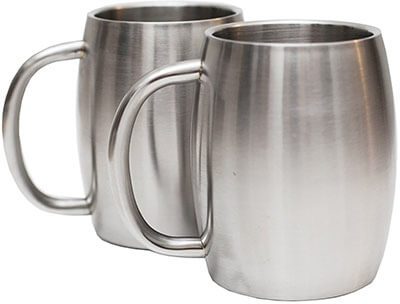 He smirked, leaned forward, reaching for the battered silver-metal teapot filled with loose leaves of tea that the busy “Lek” (not to be confused with noodle; with a capital letter, “Small” was a colloquialism for “waitress” or a familiar substitute for “Miss”) had put down, alongside two scarred silver-metal mugs, on the scarred white plastic table between us.
He smirked, leaned forward, reaching for the battered silver-metal teapot filled with loose leaves of tea that the busy “Lek” (not to be confused with noodle; with a capital letter, “Small” was a colloquialism for “waitress” or a familiar substitute for “Miss”) had put down, alongside two scarred silver-metal mugs, on the scarred white plastic table between us.
Lifting the lid of the teapot, he dropped in two sugar cubes.
“I like it sweet,” he said, gazing at me while closing the lid and swirling the pot. His eyes continued their leisurely exploration, until they swept up, again, to catch my eyes. The vague unease I felt must have shown in my eyes, and it seemed to amuse him.
“I’m sure we can work something out,” he assured me, pouring a test dollop of tea into a mug, and pouring that, untasted, back into the pot. He repeated the action, essentially aerating and stirring the brewing tea. “Everything takes time. Let’s have lunch, and then we can go to my studio. I’ll listen to some of your music, and we can go from there.”
Roth set the teapot and once-again-empty mug down neatly, planted his elbows on either side of the thin bamboo placemat, and leaned his chin on his hands. “But first, you can tell me what brings you here.”
“Study exchange,” I told him, “but I don’t have to study much, and I need to sing… and extra-curricular activities are encouraged, so I am gathering support to sing benefit concerts while I am here; raise funds for charity. So far, my local sponsors here all recommend you. They say you’re a concert pianist, but that you teach, and that I might be able to talk you into playing for me. They say all the best young local musicians work at your studio, and that, well, you speak English, so I can’t go wrong!”
“Yes,” Roth said, “I do, indeed, speak English.” He glanced down momentarily, rearranging the condiments on the table. “So… tell me what kind of charity interests you,” he continued, looking up to stare at me intently, silently urging me to continue.
“Children… and women. Endangered populations, rescued kids, outreach education to provide options during and after recovery, that sort of thing.”
“That’s — interesting,” Roth purred. His cell phone whirred; he looked at the screen, hit a few commands, and shoved it back into his pocket. “Working with any group in particular?” he continued, casually.
“Actually, yes, the directors at the performance spaces all recommended the ‘It’s a Good Morning’ Foundation. I met with them, and they like me, so we are hoping to do a short series of performance art productions.”
“Hmmm. Good start,” he nodded, amusement still lurking somewhere behind his earnest demeanour.
I rushed on, so he wouldn’t think I was a charity case myself. My voice could really fly, but I needed a 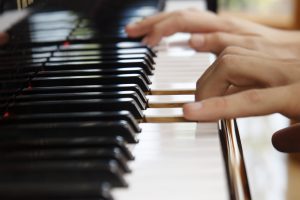 great piano player, who played securely enough to listen and let me breathe, in order to do so. Such pianists were a rare breed, and I hadn’t heard of any other accompanists currently in the region at all, despite my searching. There had to be others, but, with the language challenges of a foreign city, and the quick-turnaround schedule… Roth might be not just my best, but my only option at this point.
great piano player, who played securely enough to listen and let me breathe, in order to do so. Such pianists were a rare breed, and I hadn’t heard of any other accompanists currently in the region at all, despite my searching. There had to be others, but, with the language challenges of a foreign city, and the quick-turnaround schedule… Roth might be not just my best, but my only option at this point.
“So, yes, I will do community service outreach as well as fund-raising with my performance-art shows. About that… I paint, and draw, too — landscapes, portraits, cartoons, abstracts. I sometimes do collections, to raise awareness — close-ups of eyes, of faces, vignettes of people, symbolic references in the abstract… I play with light, and colour shape, texture. But I can design works for specific locations, as well,” I broke off. Roth was looking at my mouth. I wondered if I had spoken too long. I hurried on, “so I had hoped maybe I could pay for studio time and your accompaniment fees with art… but you said you paint…”
“Oh, nothing formal, more dabbling here and there, mostly abstract,” he interjected, “and don’t worry. There is quite a market for art, here, and abroad. Probably plenty of opportunities, if we can get a collection of your offerings put together, and sell them, yes.” He paused and poured out two mugs of tea. He pushed one towards me, palmed the other, and took a long, satisfied drink.
“Nothing better than sweet, hot fresh-leaf tea on a hot day,” he drawled, staring into his mug. “The iced stuff just makes you hotter when it’s gone.” He fixed me with his gaze again, gesturing with his steaming mug. “And this cuts the taste of the garlic chilli in the soup.”
The soup arrived, steaming, heaped with still more fresh herbs and bias-cut green onion pieces, some crispy-fried garlic fragments, and a small bowl of dark, salty chilli sauce on the side.
“Dig in,” he urged his spoon and chopsticks already busy. “You look hungry.”
The noise and bustle of the busy sidewalk noodle stand faded as I tasted my first spoonful of herb-spiked broth and noodles. Roth chuckled and stretched his arm across Roth to drop some of the chilli sauce in.
“Stir that around in there. It’ll cure anything that ails you.”
It was spicy but good. Before I knew it, our bowls were empty, and we were sipping the last of the tea from our mugs. I counted out some money from the sparse supply in my pack.
Slapping some bills on the table, Roth stood. “I’ve got it; no problem. Let’s go,” he said, pushing his chair in. He strode in the general direction of a bunch of motorcycle taxis, their drivers lounging, squinting against the cigarette smoke curling around their faces, tossing back small, steaming cups of dark tea, or sipping from the occasional can of Red Bull as they tossed dice, played cards, or tried to hustle passers-by to ride instead of walk. I looked at them doubtfully.
“We can walk from here,” Roth laughed at me, “you can try the motorcycle cabs out some other time.”
Judging from the speeds I’d seen the bikes use, weaving in and out of the city’s constant bumper-to-bumper traffic, from all the loose, single shoes scattered along the roadways, and from the pervasive lack of helmets I’d seen so far, I did not think that I’d be jumping on the back of a motorcycle, or into a sidecar any time soon. I added a half-skip step to my rapid walk to keep pace with Roth’ long legs and left the danger-on-two-wheels behind me.
“Here it is,” he said, holding one side of a large, dark-tinted, insulated-glass double-door open for me. I felt almost cold in the stream of conditioned air that rushed outside as we entered. Curving wooden staircases wound up the back wall of the huge open foyer, forming both backdrop and entryway to the main offices and studios. Occupying the vaulted space beneath the stairs, on a raised wooden stage, was a grand piano. In the far corner along the front wall opposite it was a huge, beautiful fountain, water tinkling lightly into small pools and bamboo 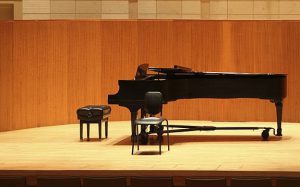 turners, or thrumming deeply on the rocks that supported a variety of ferns, orchids, and indoor ficus and other trees. The doorway was actually centered in an expansive wall of darkly-tinted one-way insulated glass. It had looked black, brownish, non-descript from the outside.
turners, or thrumming deeply on the rocks that supported a variety of ferns, orchids, and indoor ficus and other trees. The doorway was actually centered in an expansive wall of darkly-tinted one-way insulated glass. It had looked black, brownish, non-descript from the outside.
All that glass, the water, wood, and stones. I couldn’t help myself. I whistled, a brief, high, trill. Oh, great acoustics. Roth raised his chin at the space. “Welcome to my little oasis in the big-city desert. And, yes, we bring chairs in to hold concerts here, too.”
Heaven. After so long, wrangling, working, killing myself, I’d fallen into heaven. I turned towards Roth. “Do you want to hear me sing here, instead of in a studio?” I asked him, hopefully. I loved big spaces. Studios were, well, small. It didn’t bother instrumentalists so much, but for a singer…
“People can just drop by and hear you,” he said, challenging, testing.
“’s Okay,” I was confidently pulling my music out of my backpack. Singing was what I did. Awake, half-dead with flu, in my sleep… Some people play sports. I sing. I put my music on the piano, opened it to the short stick, not wanting to tear the roof off with my music while people were trying to practice their own. Roth chuckled and lifted it to the high stick.
“If you sing with an orchestra, you can handle it. My students will live through it,” he said.
Judging from the solid walls of students in the balconies upstairs, and the people crowding in from the street entrance, I guess we did alright during our impromptu concert. Roth was an excellent accompanist, for opera, classics, Broadway. He even managed some jazz, though he tended to chord through parts to listen to me, pretty often. But sometimes he improvised some harmonies, and we jammed, too. After about an hour and a half, he said, “the last call.”
“Player’s choice,” I answered him. He pulled out Tosca, raising an eyebrow at me. “I don’t sing it loudly at the start,” I told him, “and please make sure to hold the end high notes. You can hear me turn, so you’ll know the changes.” He raised both eyebrows this time. He didn’t think I had the chops, maybe…
There was absolute silence when I’d finished the last notes of imprecation and sadness, and then spat out my derision at Scarpia. I didn’t speak, either. I never did, after the Vissi d’Arte. Applause broke out among the informal crowd. Roth waved, said some quick thanks and remarks about the studio, and grabbed my sheaf of music, leading me away to his office up the stairs.
A secretary greeted him, from her tasteful inlaid-wood desk outside his office doors. She nodded at his words and disappeared as Roth gestured me to sit opposite him, in upholstered silk chairs near his own large desk. The secretary quickly returned with tea, and closed the doors as she left.
Roth had just poured the golden-hued tea into our cups when the doors opened again.
A hard-eyed man in a tailored suit and hand-sewn shoes walked in, standing briefly as if he knew Roth  would invite him to sit with us. As he sat, Roth spoke, low and rapidly, in Japanese, I think. The man looked at me, fathomless eyes glittering. “I admired your singing,” he began. “Roth-san informs me it was merely a mutual introduction. You are … new, here?” He and Roth looked at me, expectantly.
would invite him to sit with us. As he sat, Roth spoke, low and rapidly, in Japanese, I think. The man looked at me, fathomless eyes glittering. “I admired your singing,” he began. “Roth-san informs me it was merely a mutual introduction. You are … new, here?” He and Roth looked at me, expectantly.
“Yes, we met today. We were just trying out some music, seeing how we might fit together in performance. I hope to sing benefits while I study here,” I volunteered, as the silence lengthened.
“Indeed.” The newcomer continued, assessing, “and you are staying…”
Roth broke in, in that other language again. They spoke rapidly, then regarded me again. “The tea is cooling,” the dark-suited man said. “You should enjoy it while it is at its peak.” Hand hovering over his cup, he waited until I lifted my own, swallowing just after I did. Roth added more hot tea to his cup but merely watched, silently, as the man finished drinking. Setting his cup down, he rose from his chair. “I will see you at your performances,” the man said. Taking my hand, he bowed slightly, nodded at Roth, and departed.
“You have… an admirer,” Roth observed, drinking his tea at last. We were in the middle of discussing my schedule, and my performance proposals when a polite knock sounded. “Student consulting hour,” Roth informed me and moved to sit behind his desk. “I will just be a few moments.”
I paged through my music as one student after another filed through for their consultation time with Roth. After some time, a voice pushed through, “… but I cannot … I need more studio time!” The girl, a graceful teen with long, blue-black hair, clear skin and haunting eyes stood before Roth’s desk. “I will fail my audition cycle if…”
Roth silenced her with an impatient tap of his hand on the desk. “If you need more studio time, more time with the piano, more time with…me,” he looked at her, significantly, “you know what you need to do.” She looked at him, then, almost involuntarily, over at me. “Milo will see to it,” Roth said to her, brightly, seated comfortably behind his massive desk. “As you can see, I am busy, here, so decide how much you need, and we will take care of it.”
Bowing her head, her arms clutching her music protectively to herself, the girl stifled any comments she might have made, turned, and left rapidly. A tall, curly-haired blond sauntered into the room, glanced and then looked a second time at me, before turning his attention to Roth.
“Milo, see to the art shows for the upper-level piano students. They need more studio time for their music, so we will have to arrange…” Roth’s voice slowed, with a hint of annoyance. Milo, apparently, was looking again at me. I gave him a brief nod and smile and returned to my music as Roth continued. “She is a singer, here to see me. She won’t be working in the art studio; she paints, and we may be able to include some of her visual pieces, but she will work with me on benefit concerts exclusively. I will play for her. She is not a student.”
Milo raised his head a bit, exhaling. “Fine. I’ll see the upper-level students.”
“And the new ones. Bring them in slowly; we don’t want any concerns with their parents about the … time the children spend studying here. Quiet, unimpeded progress is our motto, yes?”
“Absolutely,” Milo agreed, wolfishly. He glanced at me again, “…a pity. You are still in school?” he asked me.
“Yes, scholarship,” I began, but Roth interjected.
“That will be all, Milo. Thank you.”
Milo, too, bowed slightly, at Roth, not lowering his eyes, but curling his lips in a slight smile as he did so. Turning on his heel, he departed, leaving the doors open. Roth rose and closed them, talking almost to himself as he returned to our seating area. “It is a pity. But I suppose you would not have a voice like that if you were an absolute child, would you?” Sitting, he turned engagingly towards me. “When did you start to sing?”
“I have always sung, since before I could talk, even. My voice started getting big like this a few years ago. I’m very careful, though, and mix my repertoire, so I don’t burn out like so many singers… who sing without being absolutely centered in the music, who push too hard, peak too fast, wear out their voices, you know?” I looked at him.
“Hmmm. Never good to get old too quickly…” he looked at me, stopping. “Yes,” drawing himself back into focus, “…the voice. Fragile, exposed. You have great eyes, you know. Maybe you would agree to let us shoot some photos, tasteful black and whites, art frames, while you sing? We can sell them to offset all the costs of your time with me and at the studio…”
 I could not believe my luck. “Sure!… um, no flashbulbs in my eyes, though, while I sing? That might make me jump and hurt my voice…”
I could not believe my luck. “Sure!… um, no flashbulbs in my eyes, though, while I sing? That might make me jump and hurt my voice…”
“No, of course not. We have plenty of ambient lighting fixtures available — I run an art as well as a music studio, after all. Milo is quite… talented at getting all the shots he needs. You won’t even notice him as he works.” Roth looked quite pleased with the solution he’d arrived at, and settled back into his chair, pouring us each fresh cups of tea from the steaming pot his secretary had discretely delivered.
He sat, erect but relaxed, in his chair, legs crossed, and mused, “… live-art performances: singing, fund-raising, and arts-for-awareness to benefit at-risk and rescued women and children. A worthy endeavor! And a good time to begin, right now, while there is a lull with the older students preparing for audition cycles and moving on to colleges. Yes, I will have time. You and I should work very well together. I’m sure of it.”
Roth sipped his tea, looking at me. “Now, how soon can we schedule your first concerts? Do you already have guest lists in mind, or would you like me to work up some lists of potential sponsors and funders? I have quite a few backers and patrons, who are always interested in supporting the work I do here.”
Roth sat back, cup in hand, and smiled at me. My adventure was finally starting, and I would be able to sing. Maybe things were looking up at last.
©Michele Baron
Photos from the Internet
#ShortStory #Neurodiversity #AutismAnAdvocacyInitiative #DifferentTruths

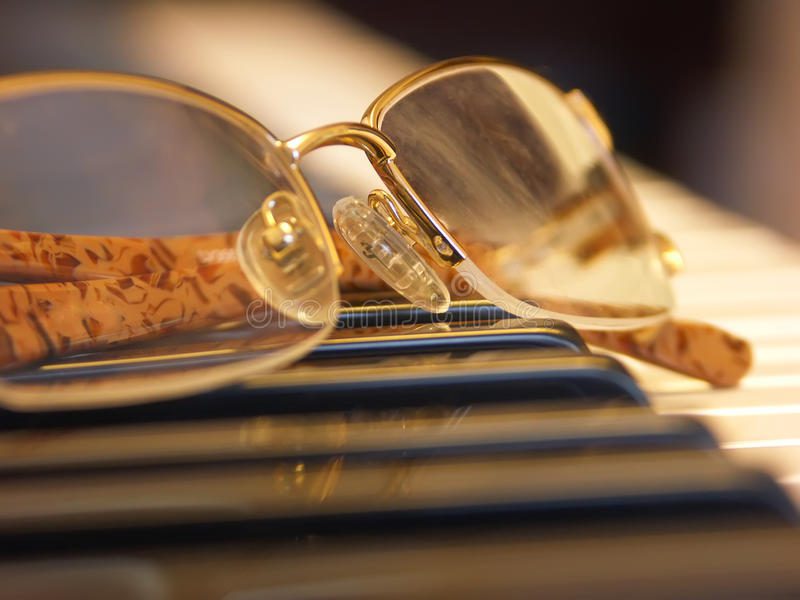
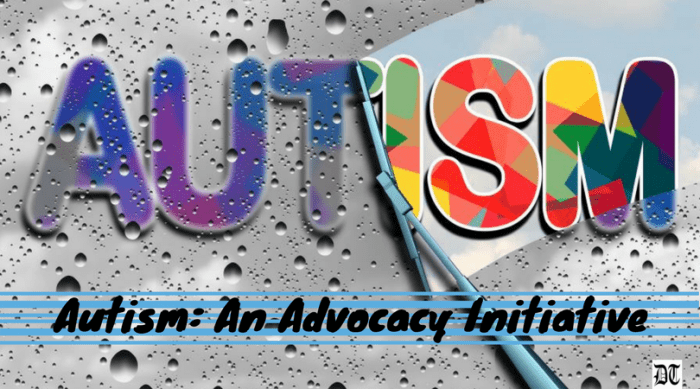

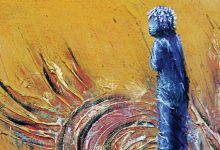
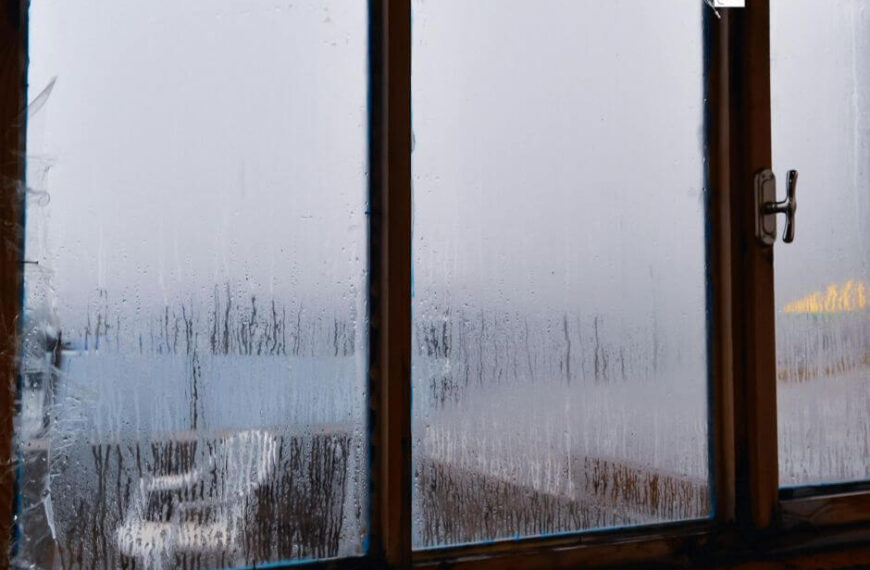
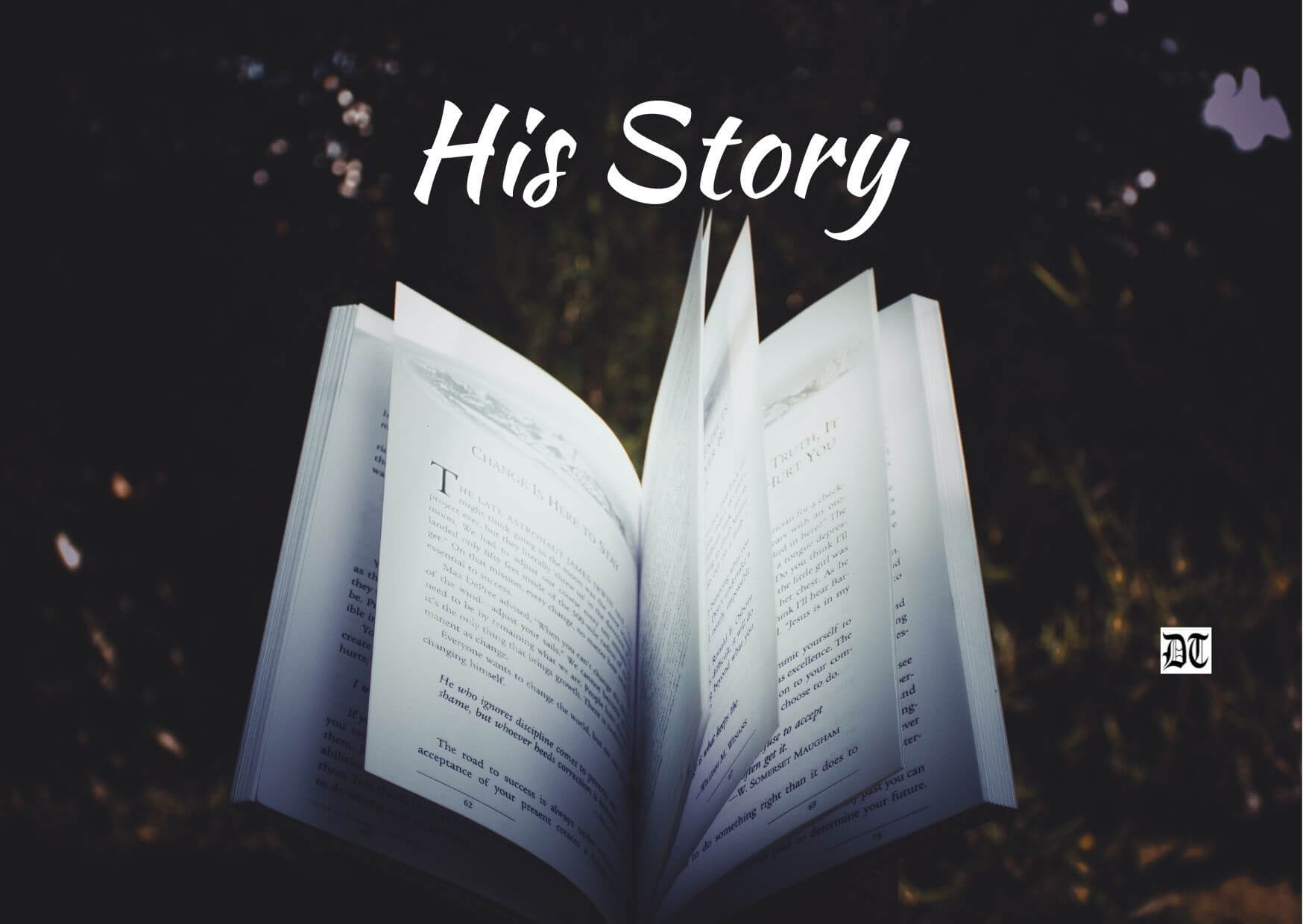
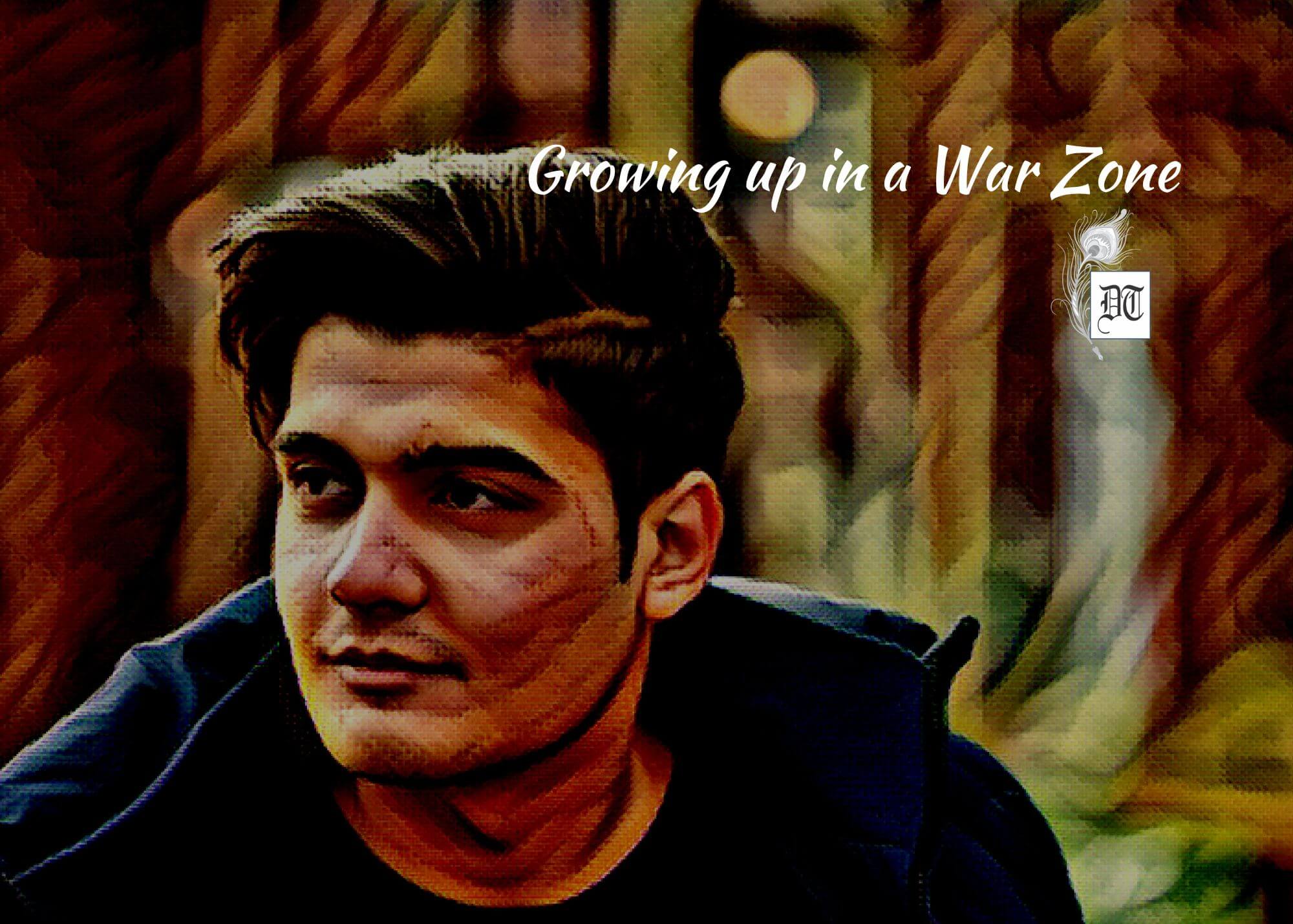
 By
By
 By
By